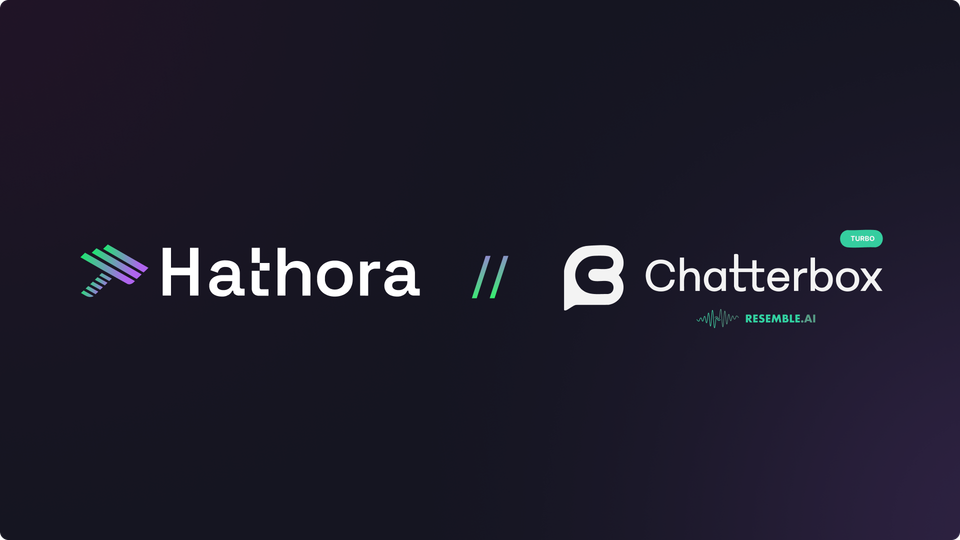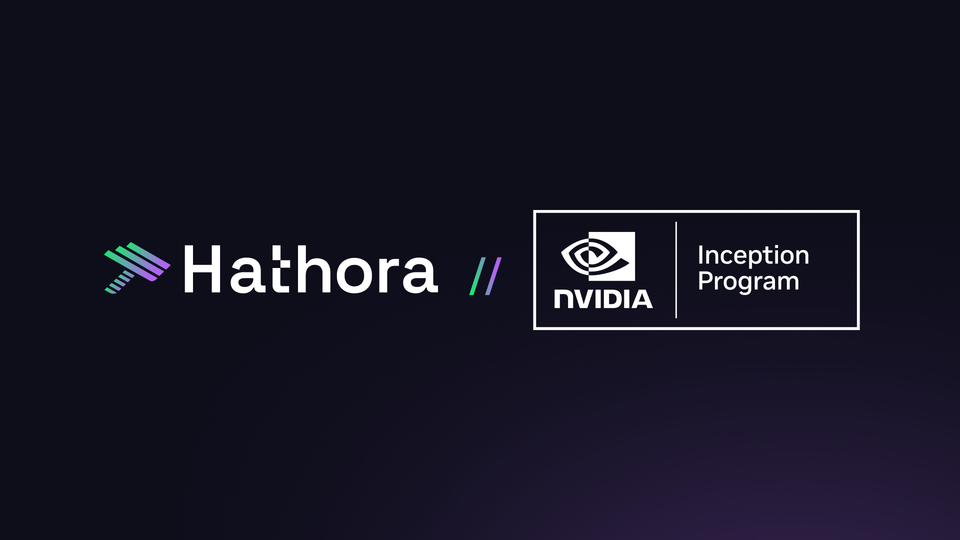How Wildcard hosted a successful DreamHack Atlanta demo booth with Hathora
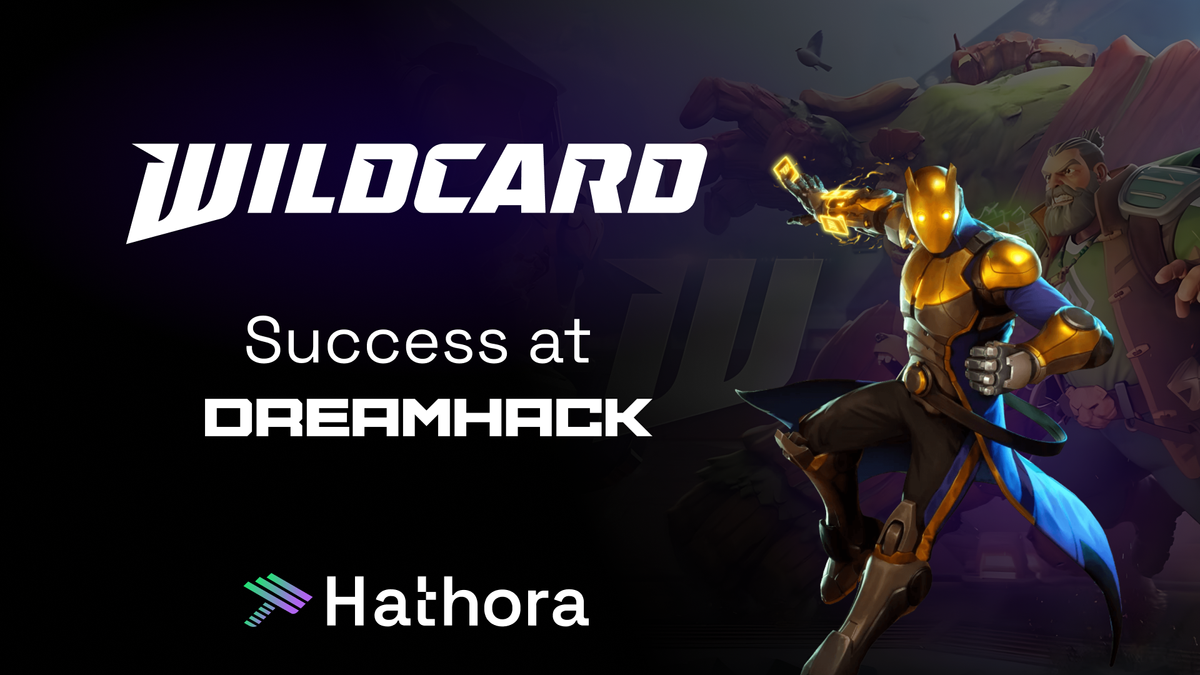
It’s already difficult to build a compelling multiplayer game, now imagine trying to stick the landing for your first ever live, in-person public showcase where players are constantly playing your game that is still absolutely a work-in-progress.
With just weeks to go until DreamHack Atlanta, the Wildcard team had to plan, design, and implement how they would manage to have a functional multiplayer demo that would let them make a big splash at DreamHack. After raising $46m in 2022 and pouring years of hard work into their game, DreamHack would be by far the biggest stage they ever publicly shared their game. Most of their team was focused on core gameplay, which left a lonesome Wildcard engineer to figure out the multiplayer infrastructure and match flow.
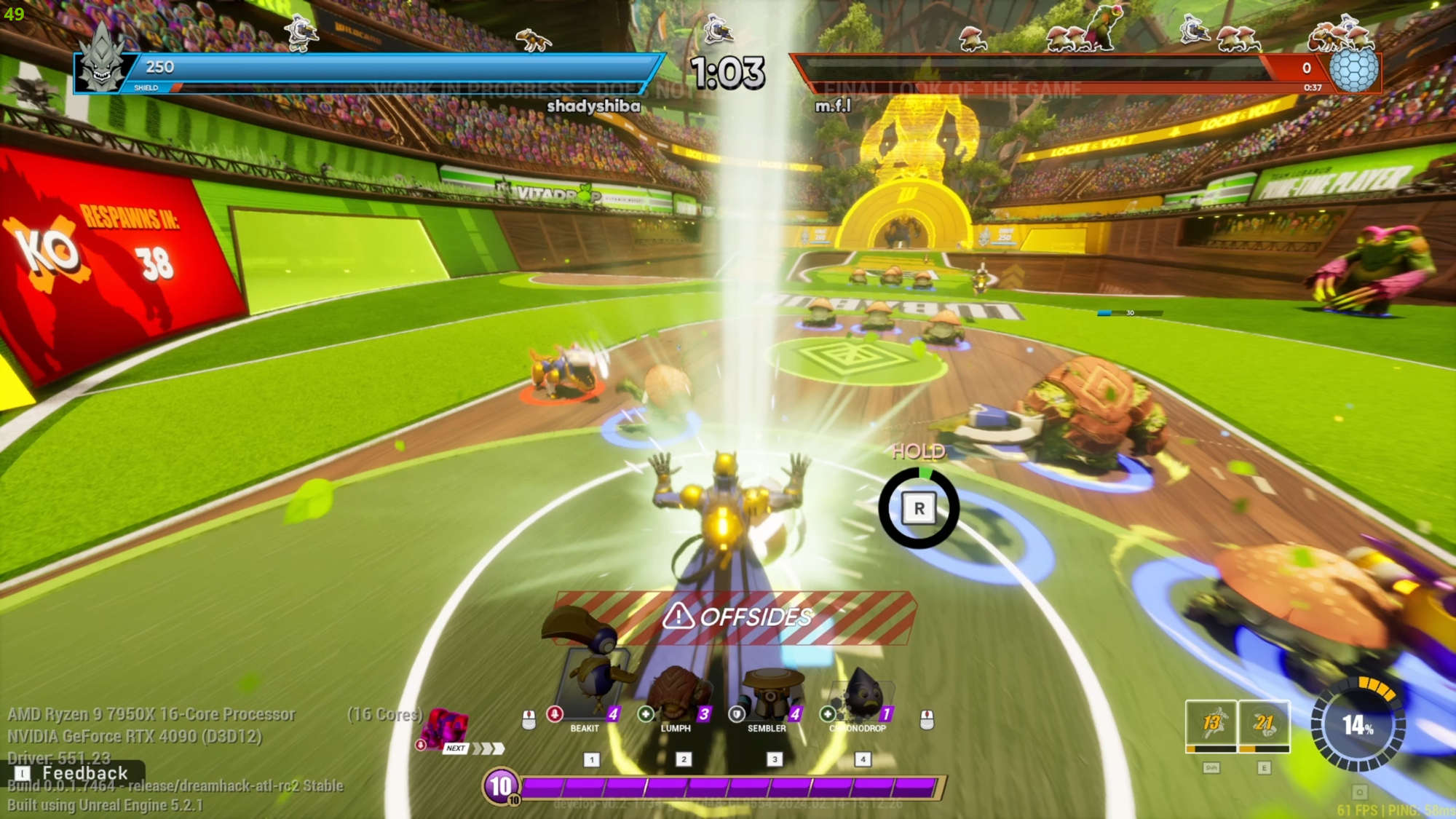
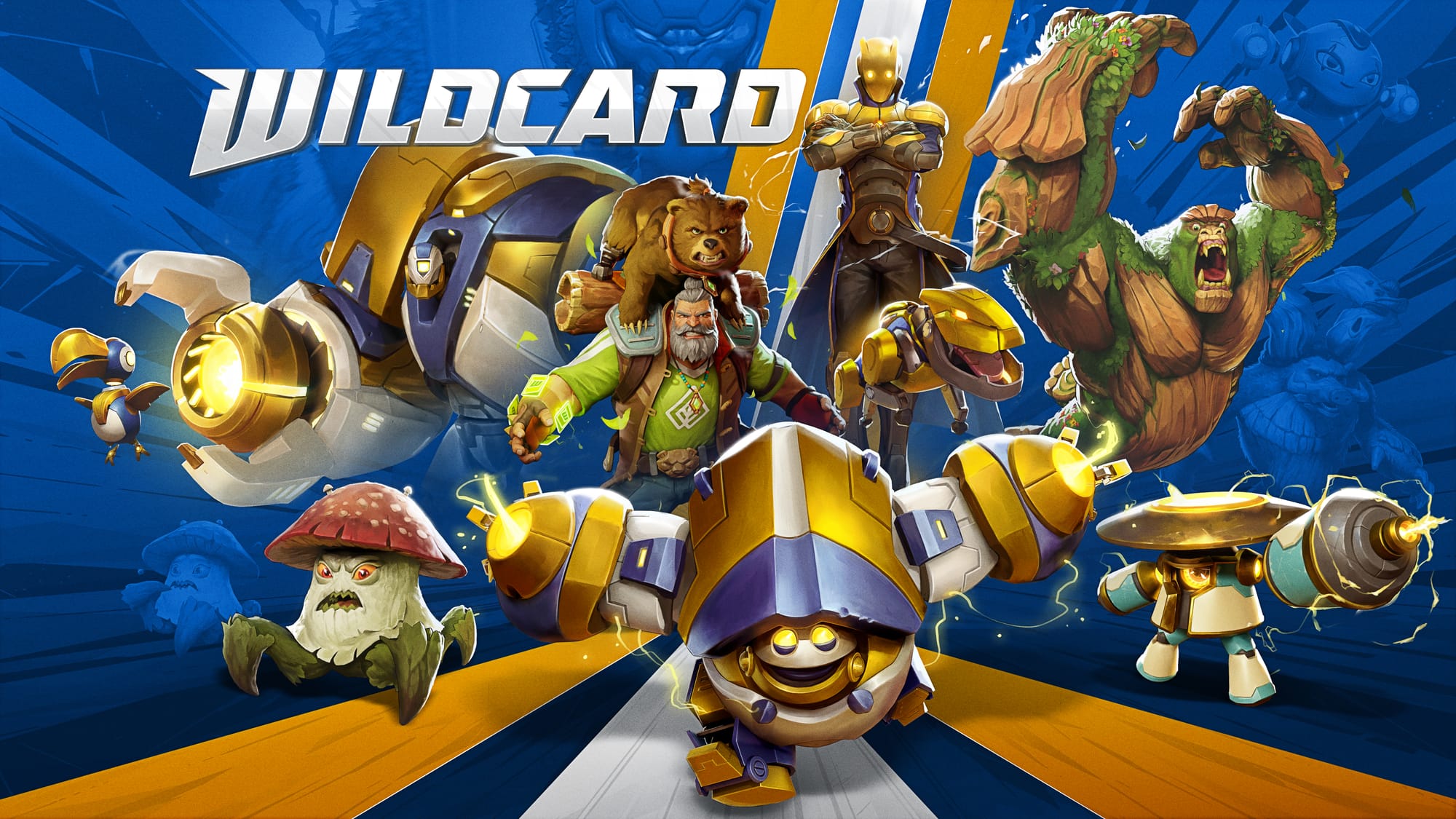

Wildcard is an exciting mix of MOBA, CCG, and third-person action games
Since Wildcard is a real-time, competitive multiplayer game that uniquely blends elements of CCG, MOBA, and third-person action games, their booth setup needed to be done with dedicated servers. And to make matters even more difficult, they had no existing matchmaking solution at the time - their internal playtests were being coordinated manually.
Wildcard’s team, with a mix of technical creativity and elbow grease, was able to pull off hosting a wildly successful booth at DreamHack. Their setup ran smoothly for 60+ hours with players playing hundreds of matches over the course of the event. And most importantly, players have responded well to their game!
But how did they get there with just one dev, and in less than a week?
Wildcard’s DreamHack solution
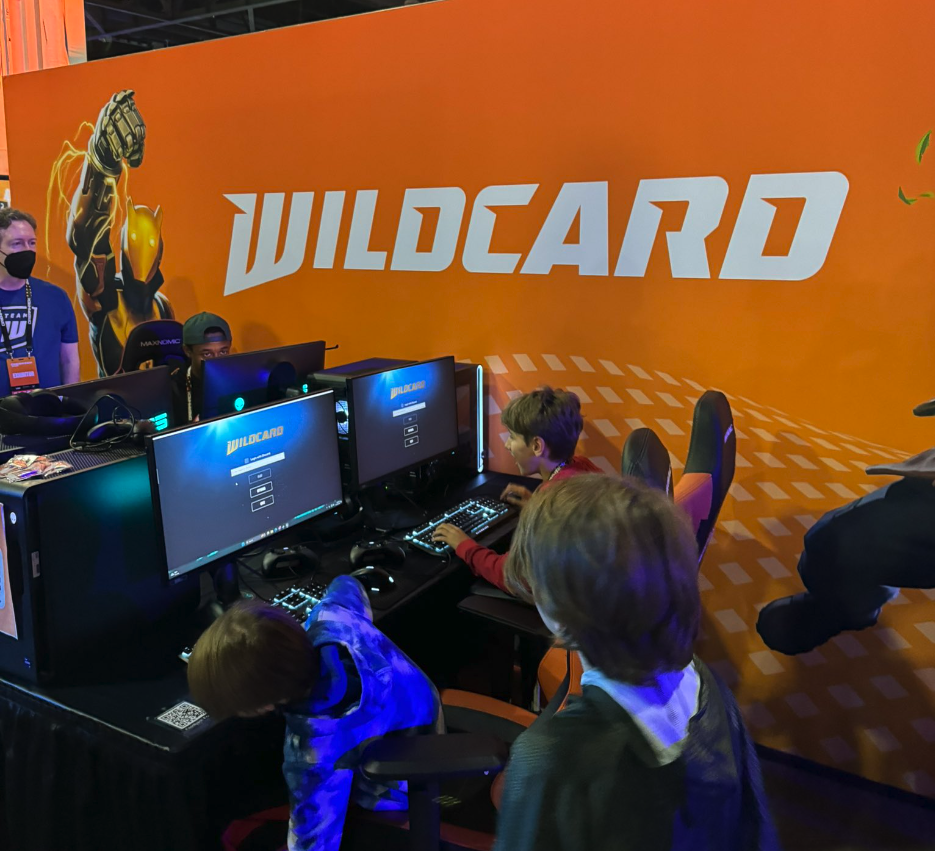
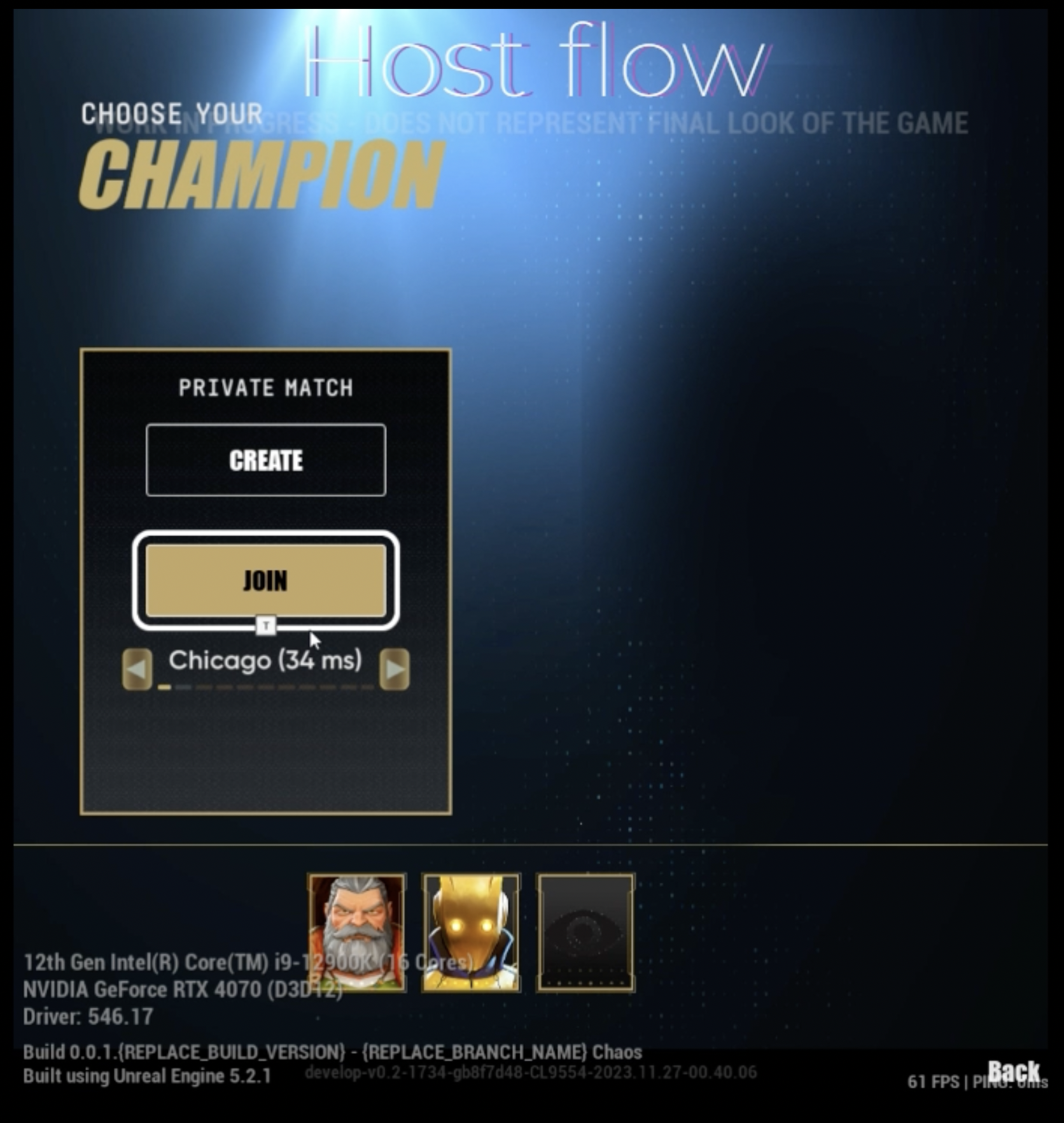
Wildcard's DreamHack Atlanta demo booth setup
Wildcard started using Hathora dedicated servers for their internal testing in the months leading up to DreamHack Atlanta. This meant that for every match, they would request a room from Hathora to spin up a server to host their match. Their setup was simple and cost-effective, but they lacked any sort of automated matchmaking logic. Someone would spin up a match manually and share information to connect to it.
They needed their match lifecycle flow to fit the requirements of their DreamHack booth:
- Create Match button to quickly spin up a server in the optimal Hathora region
- Join Match button to automatically join an open match that was just created
- Quickly exit and restart new matches for next players
Wildcard had started work on adding a production-ready matchmaking service, but they wanted a quick, stopgap solution for DreamHack since the booth requirements were very different from their launch day needs.
Wildcard reached out to us and we got to brainstorming potential solutions. We quickly recognized that Hathora’s roomConfig would be a great way to handle configuration metadata (e.g. player count, game mode). roomConfig gets passed when a room/match is created in Hathora and can be easily used by the game server and read by the game clients.
The remaining obstacle was implementing a simple middleware/service that kept track of active matches and made it easy for players to create matches and join. Conveniently, Hathora already had a lightweight Lobby Service that, although not designed for production use, is quite flexible for many use cases. After some brainstorming with the Hathora team, Wildcard ultimately decided that Hathora’s Lobby Service would be able to fit needs for their booth.
With the solution design finalized, the work to build it out ended up only taking about a week. Here's a breakdown of how they implemented their match lifecycle:
- Use Hathora’s Lobby Service middleware to:
- Manage list of active matches
- Allow players to create a match (via
CreateLobby) - Specify a reusable
shortCodefor matches to allow certain game clients to easily match with each other
- Use Hathora’s
roomConfigto track when a match is full or not
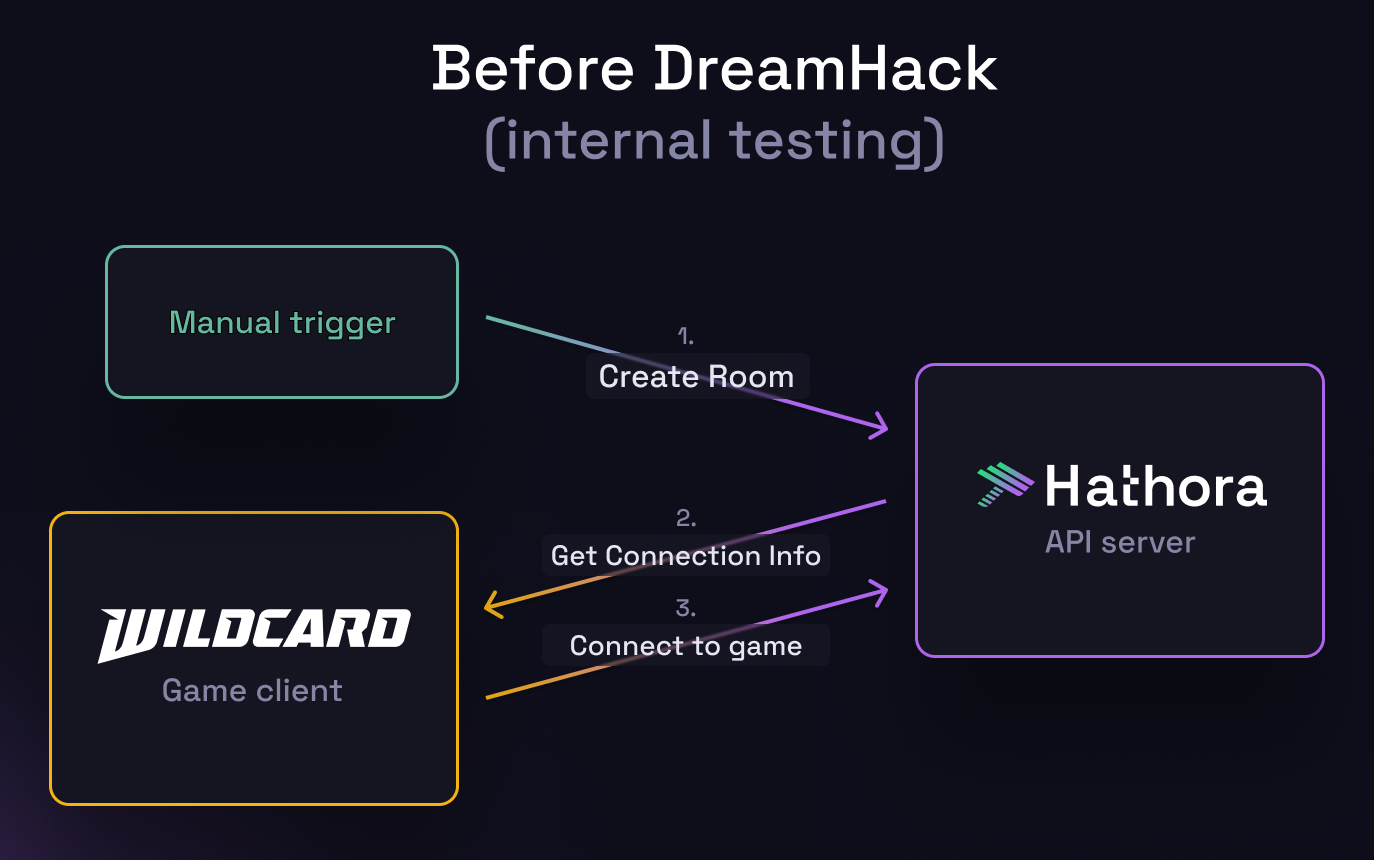
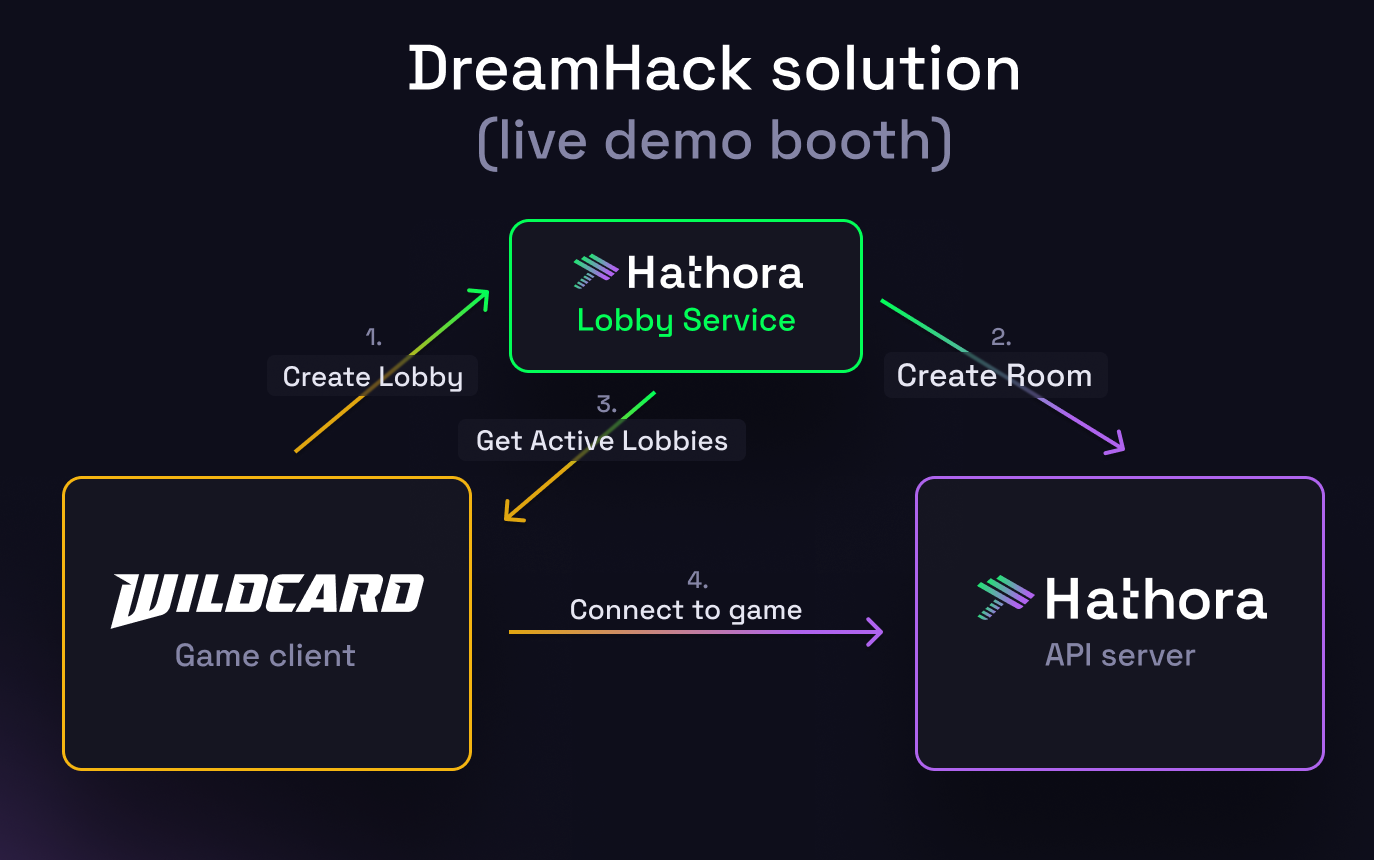
Comparison of Wildcard's DreamHack setup with what they used for internal testing
So what’s next?
Hathora’s Lobby Service works well for small-scale testing, but was never meant for a large-scale production multiplayer game. That’s why we’re so excited to partner with Beamable to provide an integration plugin for games like Wildcard to combine Hathora's dedicated servers with Beamable’s matchmaker and backend services.
Having server infrastructure that can be intuitively accessed via API calls makes integrating with offerings like Beamable a lot easier to manage. By leveraging both Beamable and Hathora, Wildcard has been able to confidently build out their multiplayer services with a very small backend team.
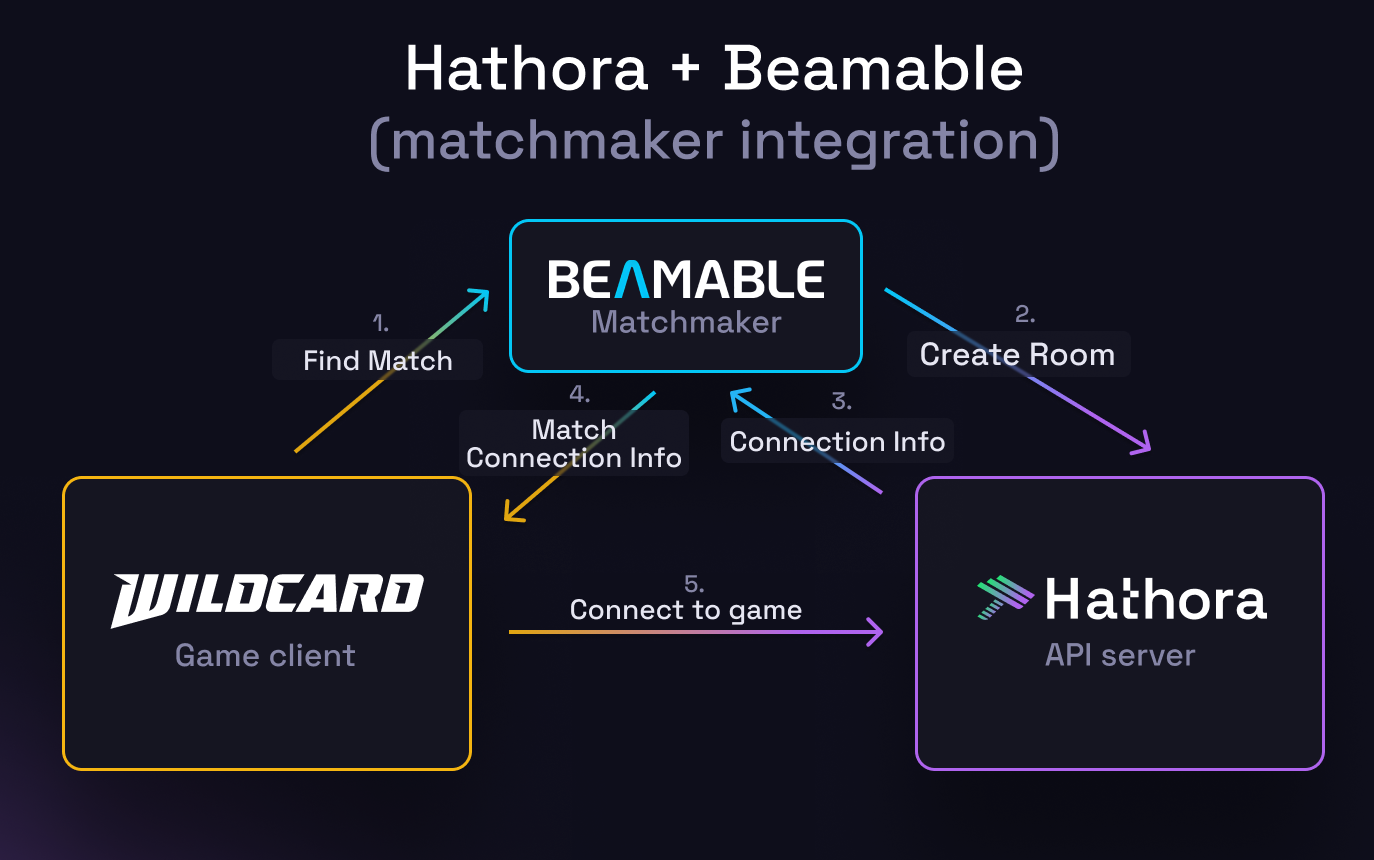
We’d love to work with you
Hathora can be your partner through internal testing, initial playtests, beta launch, and full-scale launches. We’ve recently scaled the platform to support 1m CCU for Frost Giant’s upcoming RTS, Stormgate.
We strive to make our platform flexible to make it easy to integrate with all the services you need, and we will work with you to help you stick your landing too.


